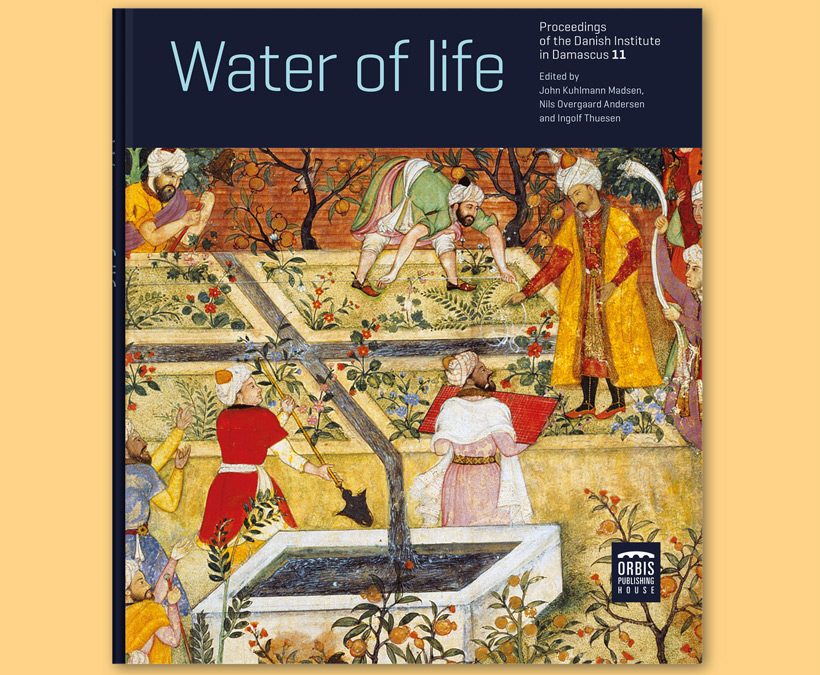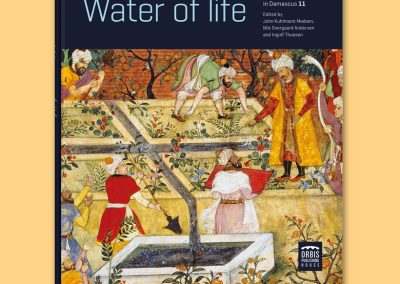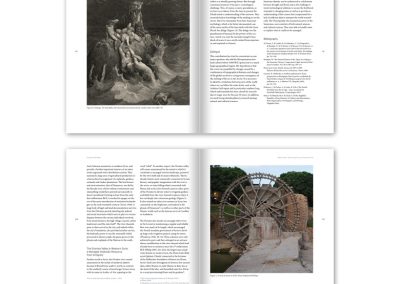This anthology deals with the meaning of water and invites the reader to expand his knowledge of one of the most important issues in the Middle East. Scholars from the natural sciences and the humanities present new research in fifteen articles on the many aspects of the meaning and use of water in the Middle East, from the first human settlements until today.
Water of life is both a metaphor and a harsh reality to life in the Middle East. In an arid region the access to sweet water is the recondition for any existence. The importance of water is obvious from the earliest written sources and archaeological finds. Both Sumerian mythology and the Bible introduce the extinction of life by a flood that would drown the entire earth. Thusly associated with both the beginning and the end of life, the role of water also became evident in the beautiful image of a paradise, a place where water generates harmony in life.
The intention of this volume, in the series Proceeding of the Danish institute in Damascus, is to disseminate the knowledge on the Middle East. The book discusses the meaning of water in human history from the beginning with the early population during the stone age and ending with examples from contemporary life.
In many parts of the world, access to sweet water is a challenge due to harsh climatic and geological conditions. Scarcity as well as abundance of water may cause major challenges to human life. This book deals with a region of the world, which mostly consists of semiarid or arid environments with little annual precipitation, which also includes some of the largest deserts in the world: the Middle East. Rain, in many areas, is unpredictable and may occur within a very limited time of the year. In addition, water is available from large rivers, most famously the Nile, the Euphrates and the Tigris, but is not immediately accessible for use. This double challenge resulted in the innovation of technologies to control the water in order to use it for consumption and subsistence. Following the development of farming, the discovery of irrigation technologies gave rise to urban settlements and empires. In the Middle East, the understanding of technologies to optimize the use of this valuable resource, became an important trigger of early civilization.
- John Kuhlmann Madsen, Nils Overgaard Andersen and Ingolf Thuesen: Introduction
- Hans J.L. Jensen: Water in the Hebrew Bible: myth and theory
- Nicole Britsch: Water in Sumerian Mythology
- Zheng-Tian Lu: The age of water. Aton Trap, Krypton-81 and global Groundwater
- Poul Erik Lindelöf: Humans in the Moroccan desert (Sahara) during the humid periods of the Lower and Middle Stine Ages
- Niels Schrøder: Climate Changes and the Human impact on Rainfall in NW Europe and the Levant
- Tobias Richter: The Role of Water in the Last Gatherer-Huner and Earlist Farming Communities of Southwest Asia
- Hans J. Nissen: The development of urban life in Mesopotamia and the implementation of canal systems
- Achim Lichtenberger and Rubina Raja: Living with and on the river-side. The example of Roman Antiochia-on-the Chrysorrhoas-forerly-called-Gerasa
- Susanne Kerner: The Water System in the Decapolis City of Umm Qais (Gadara)
- Louise Blanke: Life on the Edge of the Desert: A Late Antique Monastery and its Water Supply
- Stephen McPhillips: Water Power: the Driving Force of Economic Life in the Medieval and Early Modern Levant
- Josepha Ivanka Wessels: Qanat Romani: the Rehabilitation of Ancient Underground Water Tunnels in Syria
- Jørgen Bæk Simonsen: The Syrian spring and civil war and the demise of Syrian politics
- Kjeld von Folsach: Paradise on Earth – Water and the Islamic Garden
John Kuhlmann Madsen, Nils Overgaard Andersen og Ingolf Thuesen (redaktører) · Hans J.L. Jensen · Nicole Brisch · Zheng-Tian Lu · Poul Erik Lindelöf · Niels Schrøder · Tobias Richter · Hans J. Nissen · Achim Lichtenberger og Rubina Raja · Susanne Kerner · Louise Blanke · Stephen McPhillips · Josepha Ivanka Wessels · Jørgen Bæk Simonsen · Kjeld von Folsach.
Serie: Proceedings of the Danish Institute in Damascus 11
Forlag: Forlaget Orbis
Pris: 200 kr.
Type: Hardcover
Format: 22 x 25 cm
Sider: 200
Illustrationer: Illustreret
Sprog: Engelsk
ISBN: 9788799790821





